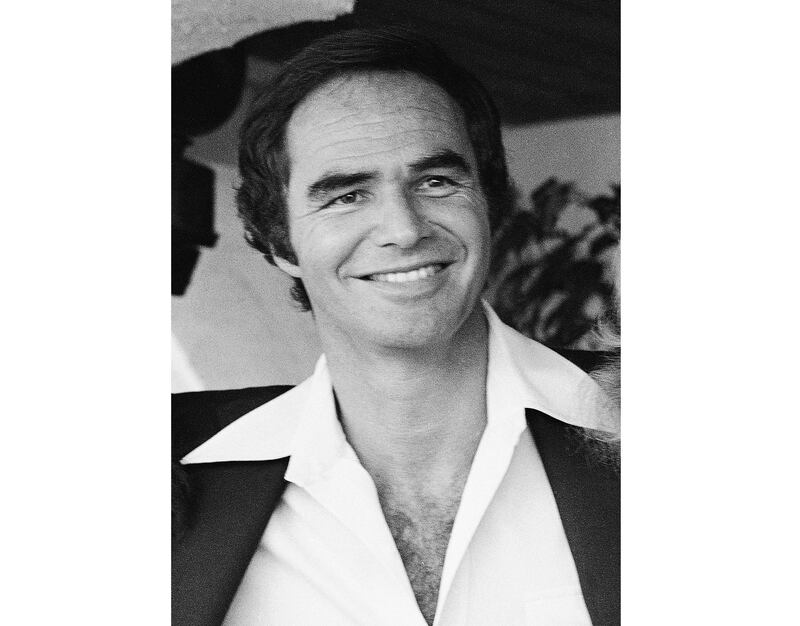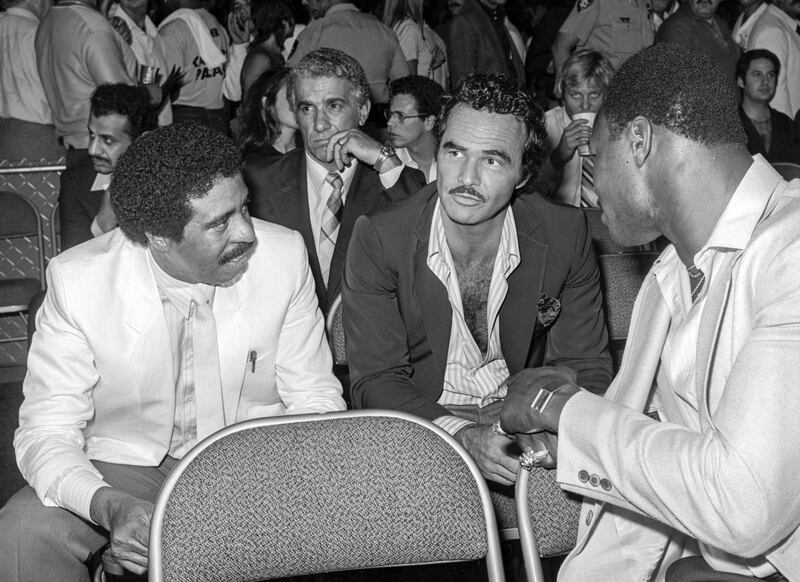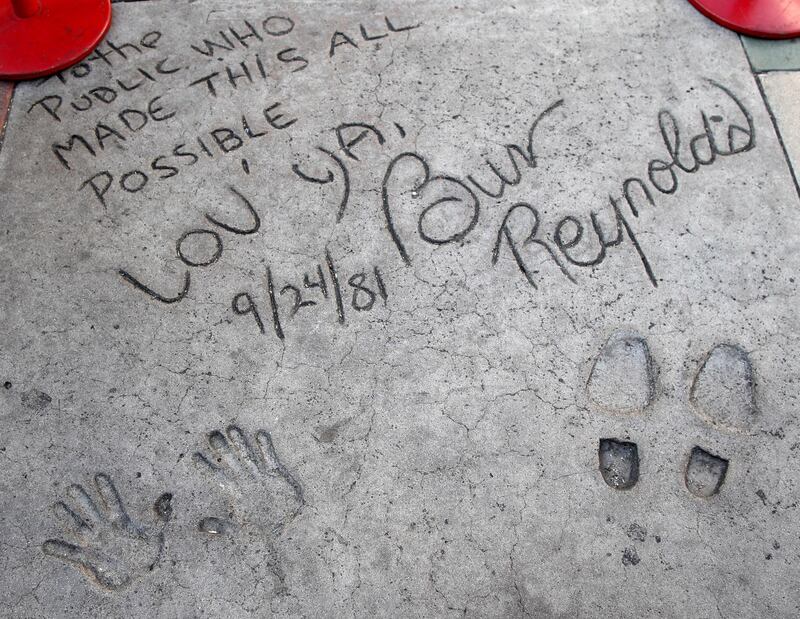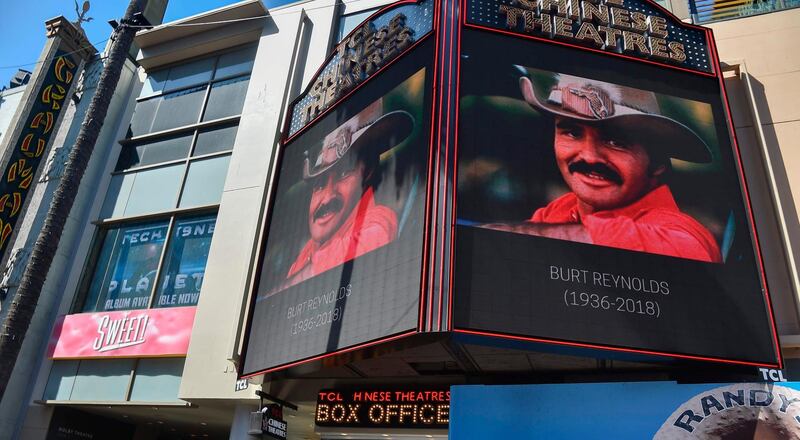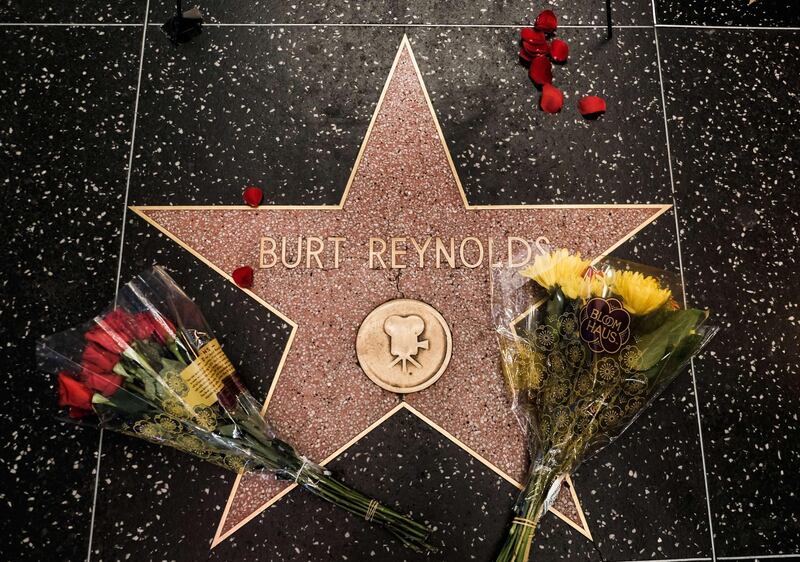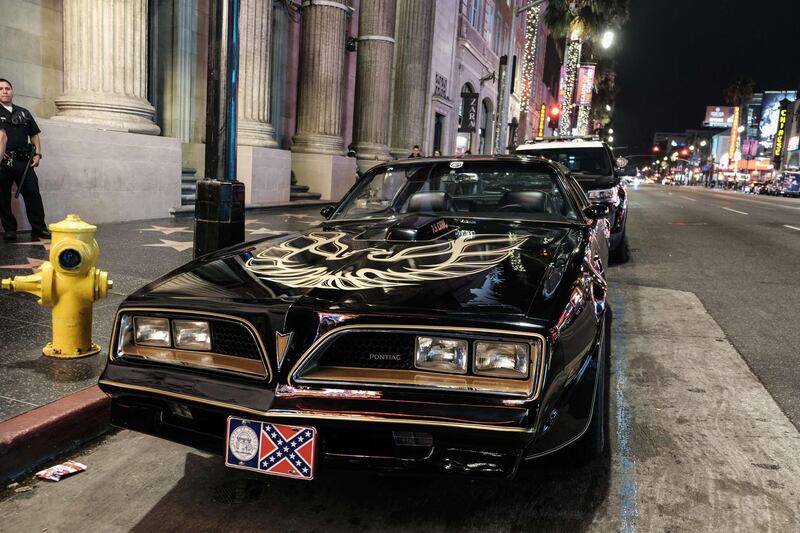Burt Reynolds, the handsome film and television star known for his acclaimed performances in Deliverance and Boogie Nights, commercial hits such as Smokey and the Bandit and for an active off-screen love life which included relationships with Loni Anderson and Sally Field, has died at age 82.
His death was confirmed Thursday by his agent Todd Eisner, who did not immediately have further details.
The moustached, smirking Reynolds inspired a wide range of responses over his long, erratic career: critical acclaim and critical scorn, popular success and box office bombs. Reynolds made scores of movies, ranging from lightweight fare such as the hits The Cannonball Run and Smokey and the Bandit to more serious films like The Longest Yard and The Man Who Loved Cat Dancing.
He received some of the film world’s highest and lowest honours. He was nominated for an Oscar for Boogie Nights, the Paul Thomas Anderson film about the pornography industry; won an Emmy for the TV series Evening Shade, and was praised for his starring role in Deliverance.
But he also was a frequent nominee for the Razzie, the tongue-in-cheek award for Hollywood’s worst performance, and his personal life provided ongoing drama, particularly after an acrimonious divorce from Anderson in 1995. He had a troubled marriage to Judy Carne, a romance with Dinah Shore and a relationship with Field damaged by his acknowledged jealousy of her success.
Through it all he presented a genial persona, often the first to make fun of his own conflicted image.
“My career is not like a regular chart, mine looks like a heart attack,” he told The Associated Press in 2001. “I’ve done over 100 films, and I’m the only actor who has been canned by all three networks. I epitomise longevity.”
Reynolds was candid about his flops, his regrets and about his many famous friends. He revered Spencer Tracy as an early mentor and came to know Johnny Carson, Clint Eastwood, Frank Sinatra and many others.
Born in Lansing, Michigan and raised in Florida, he was an all-Southern Conference running back at Florida State University in the 1950s. Reynolds appeared headed to the NFL until a knee injury and an automobile accident ended his chances. He dropped out of college and drifted to New York, where he worked as a dockhand, dance-hall bouncer, bodyguard and dish washer before returning to Florida in 1957 and enrolling in acting classes at Palm Beach Junior College.
He won the Florida Drama Award in 1958 for his performance in the role John Garfield made famous in Outward Bound. He was subsequently discovered by a talent agent at New York’s Hyde Park Playhouse.
Early theatre roles included performances in Mister Roberts and Look: We’ve Come Through.
After moving to Hollywood, he found work as a stuntman, including one job that consisted of flying through a glass window. As a star, he often performed his own stunts, and he played a stuntman in the 1978 film Hooper, one of his better reviewed films.
Because of his dark features, he was cast frequently as an Indian early in his career, including the title role in the 1967 spaghetti western Navajo Joe. He also played Iroquois Indian detective John Hawk in the short-lived 1966 TV series Hawk.
In the 1960s he made dozens of guest-star appearances on such TV shows as Bonanza, The Twilight Zone and Perry Mason. His first film role came in 1961’s Angel Baby, and he followed it with numerous other mediocre movies, the kind, he liked to joke, that were shown in airplanes and prisons.
He did become famous enough to make frequent appearances on The Tonight Show, leading to his most cherished film role.
In the early 1970s, director John Boorman was impressed by how confidently Reynolds handled himself when subbing for Carson as host of The Tonight Show. Boorman thought he might be right for a film adaptation of James Dickey’s novel Deliverance.
Reynolds starred as Lewis Medlock, the intrepid leader of an ill-fated white-water canoe trip. When he and three other Atlanta businessmen are ambushed by violent backwoodsmen, Reynolds must guide the group to safety.
Deliverance was an Oscar nominee for best picture and no film made him prouder. In his 2015 memoir But Enough About Me, he wrote that Deliverance would be his choice could he put one of his movies in a time capsule.
“It proved I could act,” he wrote.
One of his first encounters with the tabloids came in 1973 with the mysterious death of Sarah Miles’ manager during filming of The Man Who Loved Cat Dancing. Reynolds testified during a highly publicised inquest; the death was eventually ruled a suicide.
His romance with Shore, 20 years his senior, brought intense media scrutiny. The two met when Reynolds made a surprise appearance on her talk show, bursting out of a closet on the set.
In the 1980s, his career was nearly destroyed when false rumors surfaced that he was infected with the AIDS virus, in the height of hysteria over the disease. He had injured his jaw making the 1984 comedy City Heat with Clint Eastwood. Barely able to eat, he lost 50 pounds and suddenly looked ill and emaciated.
“For two years I couldn’t get a job,” he told the AP in 1990. “I had to take five physicals to get a job. I had to take the pictures that were offered to me. I did action pictures because I was trying to prove that I was well.”
He eventually regained his health, and in 1988 he married Anderson. The actress, one of the stars of the sitcom WKRP in Cincinnati, had met him on a talk show.
The couple divorced in 1995, and their breakup was an embarrassing public spectacle, with the pair exchanging insults in print interviews and on television shows. Reynolds finally paid her a $2 million settlement and a vacation home to settle the divorce.
He rebounded once again, this time with the role of porn movie impresario Jack Horner in Paul Thomas Anderson’s Boogie Nights, which brought him some of his best reviews even though he felt ambivalent about his character and felt limited rapport with the director.
He won a Golden Globe for best supporting actor and received an Oscar nomination. Convinced he would win, he was devastated when the Oscar went to Robin Williams for Good Willi Hunting.
